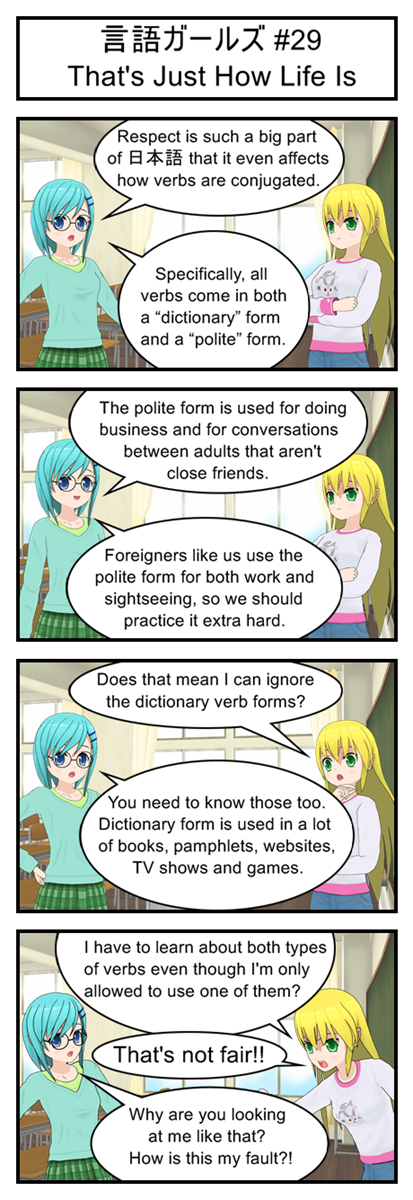
If you got into Japanese from watching anime or playing games odds are good you hear casual (or even vulgar) Japanese a lot more often than formal Japanese, which isn’t a bad thing per se. Just don’t let it influence the way you talk to actual Japanese people.
As for this whole polite verb thing: as an English speaker you should already be used to the idea that certain words are more polite than others. You might tell a friend that your car “is all busted up” but if a police officer wanted to know why you were walking along the side of the road you would probably say something more like “my car broke down a few miles back”.
In Japanese it’s the same idea, except that you have the choice between not only polite and casual words but polite and casual ways to say each word. The polite and casual forms of the verb “broke” both mean the same thing but when describing how your car broke down you would use the polite form for your mechanic, coworkers or a police officer and save the casual form for telling your best friend how your car broke down and ruined your day.
Transcript
言語ガールズ #29
That’s Just How Life Is
Blue: Respect is such a big part of 日本語that it even affects how verbs are conjugated.
Blue: Specifically, all verbs come in both a “dictionary” form and a “polite” form.
Blue: The polite form is used for doing business and for conversations between adults that aren’t close friends.
Blue: Foreigners like us use the polite form for both work and sightseeing, so we should practice it extra hard.
Yellow: Does that mean I can ignore the dictionary verb forms?
Blue: You need to know those too. Dictionary form is used in a lot of books, pamphlets, websites, TV shows and games.
Yellow: I have to learn about both types of verbs even though I’m only allowed to use one of them?
Yellow: That’s not fair!
Blue: Why are you looking at me like that? How is this my fault?!